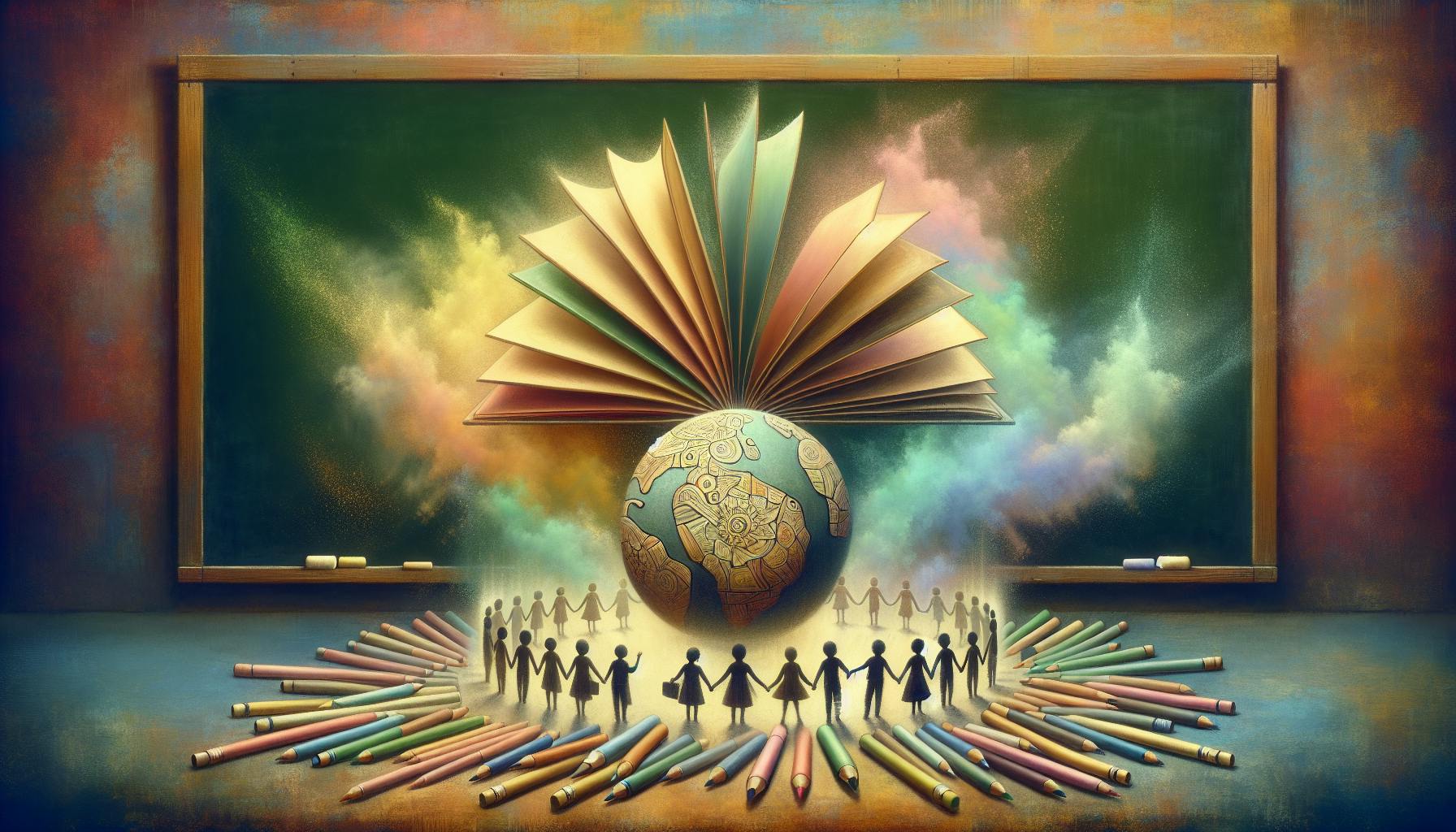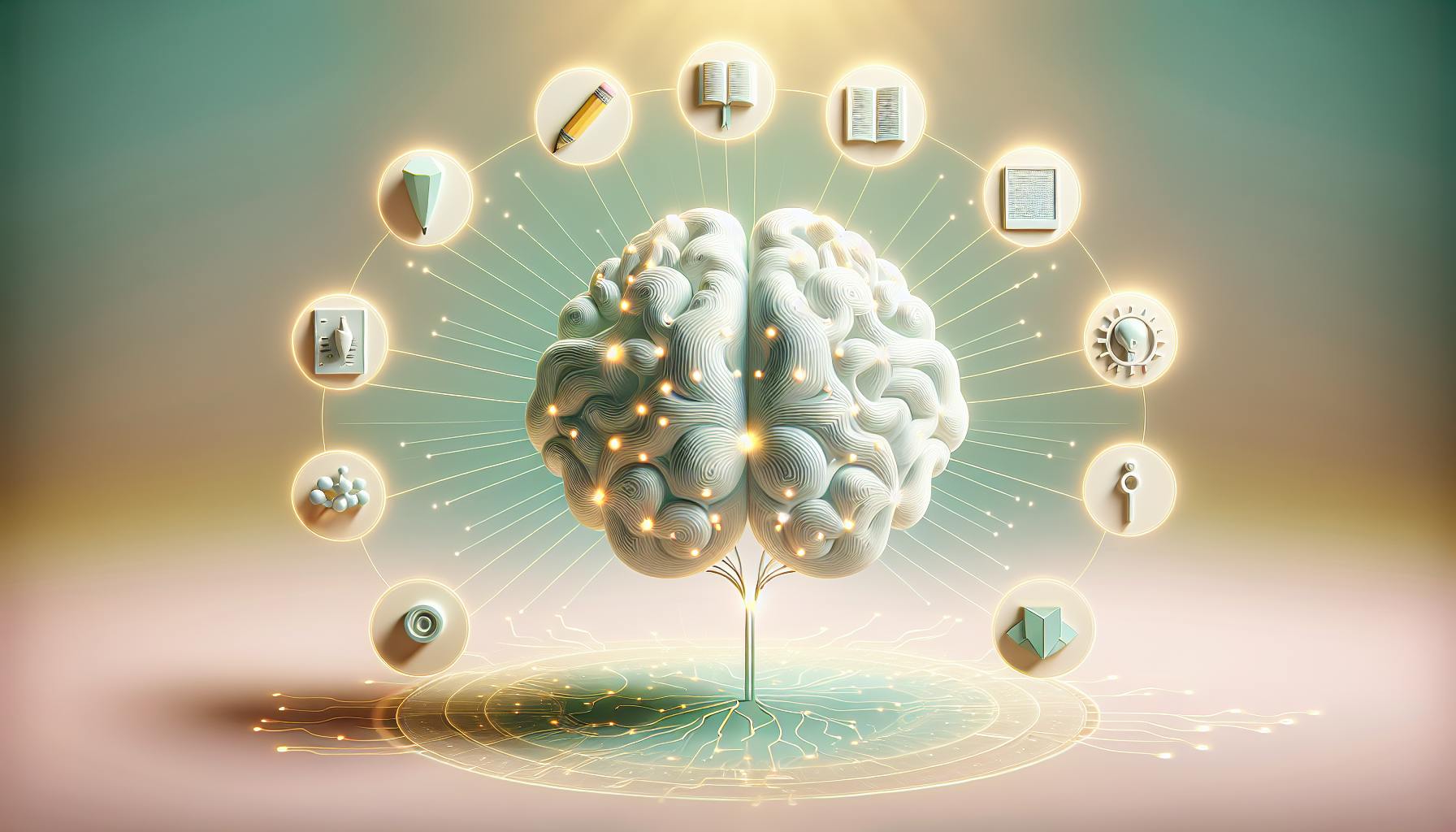Educators will likely agree that comprehending the arc of human history is essential, yet daunting, for students.
Yuval Noah Harari's Sapiens provides a uniquely accessible framework for this journey that captivates students while building critical faculties.
In this review, we'll explore Sapiens' value for classrooms, from its engaging themes to discussion questions that stimulate students' perspectives on our shared history.
Engaging with 'Sapiens' in the Classroom
About the Author: Yuval Noah Harari
Yuval Noah Harari is an Israeli historian and author. He holds a PhD in History from the University of Oxford and specializes in world and military history. His previous books include "Special Operations in the Age of Chivalry, 1100-1550" and "The Ultimate Experience: Battlefield Revelations and the Making of Modern War Culture, 1450-2000."
Harari is known for his engaging and accessible writing style. He weaves together ideas from multiple disciplines - including history, anthropology, biology, and sociology - into a cohesive narrative arc.
Overview of Key Themes and Events
In "Sapiens," Harari provides a sweeping history of humankind, beginning with the cognitive revolution around 70,000 years ago when our ancestors developed imagination and language. He outlines key events like the agricultural revolution 12,000 years ago, the unification of humankind under empire structures in the first millennium BCE, the spread of world religions, the European colonial project, and the emergence of capitalism and modern science.
Relevance of Science and Nature Books in Education
Incorporating science and nature books like "Sapiens" can help students develop a more integrated understanding of human history, moving beyond just names and dates. Tracing the biological and cultural evolution of our species fosters perspective-taking and critical thinking skills.
Setting the Stage for a Comprehensive #history Review
This book review will provide an educator's perspective on the utility of "Sapiens" for classroom integration. It will critically examine the key ideas and events presented, highlighting strengths and weaknesses. The goal is to evaluate its potential to foster engaging discussion and debate around human history.
What is the main point of the book sapiens a brief history of humankind?
Harari's central argument in Sapiens is that humans have come to dominate the planet due to our unique ability to cooperate flexibly in large groups. Unlike other animals, large numbers of Sapiens are able to work together towards common goals, even with strangers they have never met before.
This ability to cooperate allowed Sapiens to develop tools, agriculture, cities, empires and other advances that gave us tremendous advantages over other human species like Neanderthals. As a result, Sapiens drove those other human species, as well as many large animals, into extinction through overhunting and habitat destruction.
In essence, Harari attributes the success of Sapiens to:
- Flexible cooperation - Sapiens can work together in very large groups, even with strangers, in ways other animals cannot. This allows us to pool skills, labor and resources.
- Cognitive abilities - Sapiens can communicate using language and symbols, plan for the future, find solutions to novel problems, etc. This helps us adapt and innovate.
- Development of tools, agriculture, cities, etc through cooperative efforts - These advances further cemented the dominance of Sapiens over other species.
So in summary, Harari argues that the unique cooperative abilities of Sapiens are what allowed our species to rise to dominance, while driving many other species into extinction in the process. The book explores the implications of this argument for understanding human history and our species' current role in the world.
Is Sapiens a difficult read?
No, Sapiens by Yuval Noah Harari is not a difficult read. Here are some key reasons why:
- Plain language: Harari uses simple, straightforward language to explain complex ideas and concepts from human history and evolution. He avoids academic jargon, making the book accessible to general readers.
- Storytelling approach: Rather than a dry textbook, Sapiens reads more like an engaging story chronicling different eras and milestones in human progress. This narrative format makes the book easy to follow.
- Bite-sized chapters: The chapters are relatively short, ranging from 15-25 pages. These bite-sized sections make it easy to digest the content. Readers can tackle the book in managable chunks rather than long, dense chapters.
- Big picture perspective: Harari focuses more on overarching historical trends rather than getting bogged down in minute details. This 30,000 foot view of human history keeps the narrative moving briskly.
So in summary, while Sapiens covers weighty topics like biology, anthropology, and sociology, Harari manages to synthesize these complex ideas into a highly readable and enlightening book for general audiences. The prose is light and conversational, making Sapiens an enjoyable and surprisingly easy read.
What does the book Sapiens teach us?
In his international bestseller "Sapiens: A Brief History of Humankind", historian Yuval Noah Harari explores the evolution of Homo sapiens and how our species came to dominate the planet. The book provides thought-provoking insights into human history, challenging long-held assumptions about progress and modernity.
Some key lessons from Sapiens include:
- Our ability to create and believe in shared fictions, like myths, religions, and ideologies, has been instrumental to the development of large-scale human cooperation. These "imagined realities" help bind groups together around common beliefs and purposes.
- The Agricultural Revolution brought about profound changes in how humans live, shifting us away from nomadic hunter-gatherer lifestyles towards more settled agrarian societies. However, the transition was not uniformly positive - bringing longer working hours, poorer nutrition, and the concept of inequality.
- The Scientific Revolution and subsequent technological innovations have dramatically increased human capabilities. However, Harari argues that science itself should not be viewed as an objective universal truth, but as another "myth" that shapes our shared reality.
- Modernity has brought unprecedented material abundance for some, yet persistent inequality, environmental issues, and new ethical questions about the future of humankind. Sapiens serves as a reminder that continued progress should not be taken for granted.
In exploring these themes, Sapiens provides a thought-provoking big picture view of human history. For educators, it can prompt useful discussions about the nature of progress, the role of belief systems, and humanity's shared challenges going forward. While sweeping in scope, Sapiens distills key lessons about what it means to be human.
sbb-itb-bb2be89
Can children read Sapiens?
I would not recommend Sapiens as reading material for most children below the age of 15. Here's why:
- The book covers broad spans of human history and dives into complex concepts in anthropology, sociology, biology, and philosophy. This level of nuanced discussion may be difficult for younger readers to fully grasp.
- There are some mature themes in the book involving politics, war, and humanity's destructive tendencies that are more appropriate for older teenagers.
- The writing style, while very engaging, uses sophisticated vocabulary and literary devices that children under 15 may struggle with.
- The book's discourse on the cognitive revolution and the origins of human thinking requires some background knowledge of evolution and psychology, which children lack.
However, for exceptionally motivated 15+ year old students who have a strong interest in history and science, Sapiens may inspire deeper thinking. Under adult guidance, mature teenagers could benefit from wrestling with the thought-provoking ideas in this book. But comprehension support would be needed given the complex subject matter.
In summary, Sapiens packs great intellectual insights, but the sophistication places it outside most children's reading abilities. Sticking to age-appropriate materials is wise to nurture young readers effectively. Educators could selectively excerpt small passages for discussion with advanced secondary school students. But independent cover-to-cover reading is best left to older teenagers and adults.
Detailed Chapter-by-Chapter Review and Analysis
The Cognitive Revolution: A New Beginning
Around 70,000 years ago, Homo sapiens underwent a cognitive revolution that led to several breakthroughs distinguishing us from other human species. As hunter-gatherers, early humans developed language, enabling far more sophisticated communication and coordination. We also began crafting myths and holding beliefs in things beyond the tangible world around us. This new capacity for abstract thought was a pivotal development, though early humans still lived in small, egalitarian bands, foraging and hunting to survive.
The Agricultural Revolution: Seeds of Modern Society
Around 12,000 years ago, the agricultural revolution dramatically reshaped human societies. The advent of farming, permanent settlements, and food surpluses enabled rapid population growth and urbanization. However, agriculture also brought steep inequality, centralized power in the hands of small elites, rigid social hierarchy, and far more taxing workloads for most people. These first complex, stratified societies laid the groundwork for the modern world's social structures and many of its conflicts.
The Unification of Humankind: Forces that Shaped Our World
Several key innovations facilitated the gradual unification of humankind over the last few millennia. Money and markets enabled more universal, impersonal exchange networks linking far-flung groups. Powerful empires unified swaths of territory under centralized rule and common culture. Universal religions proselytized moral codes and belief systems spanning ethnicities and geographies. Gradually, despite linguistic and ethnic diversity, more aspects of human life came under common economic, political, social, and cultural structures.
The Scientific Revolution: Questioning and Understanding
The scientific revolution fundamentally altered humans' perspective on existence. Innovations like the telescope challenged geocentric assumptions. Thinkers like Galileo pioneered empiricism and the scientific method. Over time, science revealed Earth as an infinitesimal speck in a vast cosmos, and Homo sapiens as one young species in the tree of life resulting from billions of years of evolution. By questioning long-held certainties, science initiated a deep shift in humankind's worldview.
Interconnecting Themes in Science and History Books
Unlike traditional history books, Sapiens interweaves scientific insights about human evolution, cognition, and ecology with analysis of historical events and social dynamics over millennia. This unique approach underpins compelling arguments about human development. It facilitates nuanced discussion of how biological and cultural factors interacted to shape modern humankind. Overall, it provides an engrossing synthesis of history and science.
Educational Insights and Discussion Prompts for Teachers
Highlights for Class Discussion: Engaging with #history
Yuval Noah Harari's Sapiens provides ample fodder for classroom discussion around human history and development. Here are some notable highlights:
- The Cognitive Revolution around 70,000 years ago marked a major turning point in human progress. We could discuss what sets humans apart from other animals and how our unique cognitive abilities may have developed.
- The development of agriculture, cities, and centralized power structures fundamentally changed how humans live together in large groups. We could debate whether these changes improved life for most people.
- The Scientific Revolution and industrialization greatly impacted standards of living. How might students imagine life before these innovations? What pros and cons came with rapid technological changes?
- Harari argues that human systems of order and meaning like religion, capitalism, and human rights exist in our collective imaginations. We could discuss whether these are real or made up concepts.
These are just a few thought-provoking areas for stimulating student perspectives on human history.
Relatable Examples Relevant to Students
Harari explores many abstract historical concepts, but there are opportunities to relate these to students' modern lives:
- Hunter-gatherers enjoyed a leisurely lifestyle with more freedom and autonomy than agricultural peasants who later fed growing cities. This could compare to how some view modern office jobs versus freelancing or self-directed work.
- Agricultural and industrial revolutions led to consolidated power structures with less personal freedom for individual workers. Students may find parallels in how modern technology or social media platforms control user data and choices.
- Dominant religions have shaped social values over history. How do modern belief systems around issues like environmentalism or diet choices similarly influence students' peer groups?
Drawing these types of connections makes historical ideas more tangible and easier to grasp.
Thought-Provoking Discussion Questions
Here are some discussion questions to stimulate student perspectives:
- Do you think key historical events like the Cognitive or Agricultural Revolutions represented overall progress or not? Why?
- How might your daily life differ as a hunter-gatherer, farmer, or factory worker in various eras? Which lifestyle appeals most?
- Do you see modern belief systems like humanism or capitalism as real or imagined social constructs? Why?
- How has Harari’s book influenced your views on human history and development? What insights resonated or surprised you?
Open-ended questions like these prompt students to think critically about impactful historical ideas while articulating and developing their own viewpoints.
Critical Review Points for Educators
While full of fascinating insights, teachers should review certain aspects of Harari's work critically:
- Sweeping generalizations about human life in various eras may not always reflect nuanced reality. Students could research counter perspectives.
- Arguments around religion or capitalism shaping modern values may oversimplify complex factors driving human behavior and systems.
- Anthropocentric viewpoints center the human story while minimizing perspectives of other species or environmental impacts. This could warrant balanced discussion.
- Sociobiology arguments pose risks of deterministic thinking around human nature and progress. Countering views should be presented.
With balanced input, educators can use Sapiens to open thoughtful dialogue from multiple standpoints around the human journey.
Conclusion: Reflecting on the Journey Through Humankind's Past
Essential Value for Classroom Use: A #bookreview Perspective
"Sapiens: A Brief History of Humankind" provides an engaging overview of human evolution and history that can stimulate critical thinking in the classroom. As a teacher, I appreciate how the book prompts students to examine long-held assumptions about topics like the agricultural revolution, the origins of money, and the factors that allowed Homo sapiens to dominate other human species. By reviewing diverse historical interpretations, students learn there are often no definitive explanations in the study of the past. Ultimately, the book models intellectual humility - showing even the brightest thinkers must continue questioning.
Limitations and Considerations
As with any sweeping work of history, "Sapiens" promotes a particular worldview that teachers should supplement with competing perspectives. Harari breezes through eras and regions of history in a selective fashion. The book also ignores mythology and oral traditions as valid ways of understanding the past. Educators can address these weaknesses by having students research alternative narratives left out of the textbook.
Final Takeaways and Recommendations
"Sapiens" succeeds in condensing 13 billion years into a thought-provoking narrative about the underpinnings of modern humankind. The book provokes curiosity about disciplines from biology to economics in an interdisciplinary way. I recommend teachers use "Sapiens" to stimulate new lines of inquiry about human beliefs, behaviors, and potential.
Integrating Science and Nature Books into History Education
Interdisciplinary works like "Sapiens" allow teachers to explore history through diverse lenses, including biology, anthropology, sociology, and more. Science and nature books reinforce history is multi-faceted, complex, and interconnected to other fields of knowledge. Integrating these books promotes systems thinking and big picture analysis while still developing critical thinking skills.


